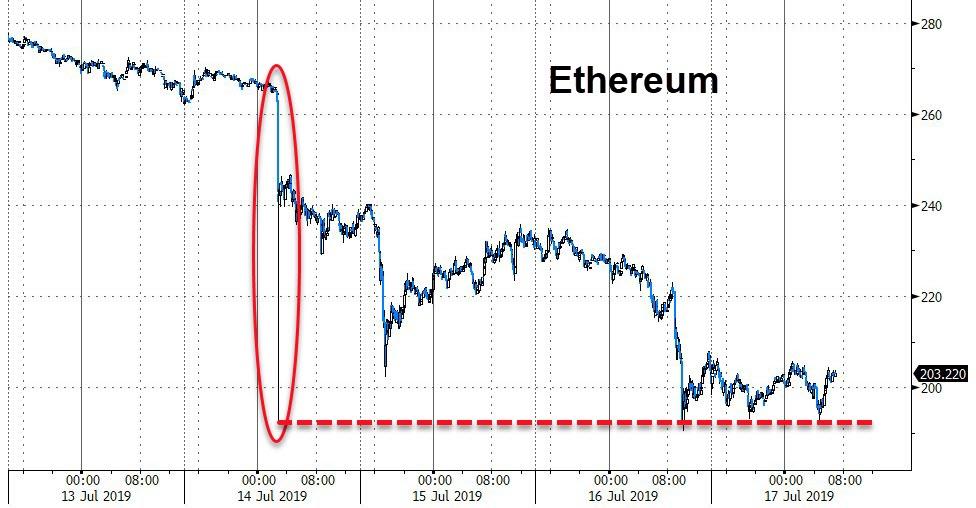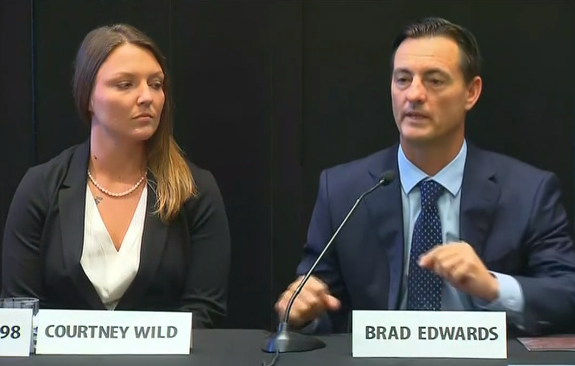In a new book, Rep. Justin Amash (I–Mich.), the libertarian-leaning former Republican lawmaker who left the party earlier this month, says the contemporary Republican Party is full of liars.
In interviews conducted a year ago but not published until now, Amash says President Donald Trump’s ability to shamelessly lie to the American people is his “superpower,” and accuses his former congressional allies of “lying through their teeth” to protect the president.
“They believe in a cosmic battle between the right and the left, good and evil, and they think any criticism of Trump is helping the other side,” Amash told Politico reporter Tim Alberta in a previously unreported interview that appears in Alberta’s new book: American Carnage: On the Front Lines of the Republican Civil War and the Rise of President Trump.
The book is a wide-ranging and comprehensive look at the evolution of the GOP during the past decade, as a grassroots-versus-establishment fight morphed into a populist takeover that elevated a reality TV star to the White House. It unfolds chronologically over the course of that decade, with each chapter taking place within a single month somewhere between February 2008 (when John McCain overtook Mitt Romney in the GOP presidential primary) and December 2018 (when Trump shut down the government in a fit of anger over his unfunded border wall). Trump’s election, Alberta concludes, is not the cause of the current chaos within the GOP, but rather “its most manifest consequence.”
Amash was one of the few Republican members of Congress who managed to avoid being caught up in Trump hysteria—until it effectively forced him to resign from the party. His colleagues, Amash tells Alberta, are “willing to do whatever” to placate the president.
“If that means going on Fox News and lying through their teeth about Trump, so be it,” he says. “I think they’re hurting themselves and they’re hurting the country when they do this stuff.”
Amash also unloads on Trump, saying that the president has a “one of a kind” ability to shamelessly lie in public.
“The president feels comfortable saying two things that are completely contradictory in one sentence; or going to a rally and saying one thing and then holding a press conference and saying another,” Amash tells Alberta. “Most people aren’t comfortable doing that. But because he is, it gives him this superpower that other people don’t have.”
Taken together, Amash’s comments in the new book cement the idea that he was “the loneliest man in Congress” during much of the past year. Amash’s feud with Trump—and with the Republican Party now controlled and dominated by Trump—did not fully spill into the open until a few months ago, but the details reported by Alberta make clear that Amash was already on the outs with many of his fellow Republicans more than a year ago.
Much of Amash’s angst was centered on the fading viability of the House Freedom Caucus, the libertarian-ish voting bloc in Congress that Amash co-founded in 2015. Originally, Freedom Caucus members pledged to “support open, accountable and limited government, the Constitution and the rule of law, and policies that promote the liberty, safety, and prosperity of all Americans.” While it never grew larger than about 30 members, the voting bloc played an instrumental role in ousting House Speaker John Boehner in 2015, complicated the passage of a mass surveillance reauthorization package the following year, and forced some changes to the doomed “repeal and replace” of Obamacare in 2017.
But by the summer of 2018, the Freedom Caucus had morphed into being what Alberta describes as “the most reflexively partisan Republicans on Capitol Hill.” The group did virtually nothing to oppose the passage of the 2017 tax bill that was projected to add roughly $1 trillion to the deficit over 10 years, and it was similarly impotent to stop a massive spending bill passed in early 2018 that effectively locked-in trillion-dollar deficits for the foreseeable future. After the bill passed, members of the House Freedom Caucus did lobby Trump to veto the $1.3 trillion spending plan—and Trump threatened to do so. But he ended up signing the bill anyway, and afterwards, the House Freedom Caucus seemed to lose its ability to influence the White House.
Instead of focusing on fiscal restraint and restoring proper legislative procedure—which was the real reason for the caucus’ formation in the first place—members of the House Freedom Caucus became perpetually engaged in the Trump-Russia fight and culture war issues.
Corie Whalen, Amash’s former communications director who has also stepped away from Republican politics since leaving the congressman’s staff last year, recalls that the House Freedom Caucus seemed to lose its way in the aftermath of the 2018 budget vote. From her perspective, it seemed like the group became increasingly fixated on Special Counsel Robert Mueller’s investigation into Russian interference in the 2016 election.
“They weren’t talking about appropriations; they weren’t talking about procedure. They were just out there shilling for the White House,” Whalen tells Reason. “That was when they really threw away their leverage.”
Publicly, the breaking point between Amash and Trump—or between Amash and the Freedom Caucus, if there is a meaningful difference anymore—came in May of this year, when Amash outlined on Twitter his belief that Trump had engaged in “impeachable conduct” by trying to disrupt Mueller’s investigation.
Since then, Amash has been attacked by the president on Twitter and a Trump supporter has announced plans to run against the five-term congressman in 2020 (it’s not clear whether Amash plans to run for re-election to the House as an independent).
In one of the most brazen indicators of how the Republican Party is now the House of Trump, House Minority Leader Kevin McCarthy (R–Calif.) went on Fox News to claim that Amash “votes more with Nancy Pelosi than he ever votes with me.” That’s a lie, and an easily proven one. Amash has one of the most conservative voting records in Congress, and holds a nearly perfect lifetime rating from the Club For Growth, a free market group that tracks lawmakers’ votes on a wide range of issues. FreedomWorks, another small-government group that similarly scores lawmakers’ votes, gives Amash a 100 percent rating.
More lies in the service of Trump.
Behind the scenes, Alberta suggests that the final straw for Amash might have been the Freedom Caucus’ unwillingness to stand up to Trump when he attacked a different member of the group. Rep. Mark Sanford (R–S.C.) lost a June 2018 primary election to a Trump-backed challenger, and afterwards, Trump mocked Sanford during a meeting with House Republicans. In a follow-up tweet, Trump embellished the story by claiming House GOPers had “laughed and applauded,” Alberta writes, even though none of that was true. In reality, Amash and other Freedom Caucus members spoke up in defense of their colleague—but the group’s leaders, including chairman Rep. Mark Meadows (R–N.C.), who has now become a key Trump ally in Congress, offered no public rebuke of the president. Shortly after that, Amash stopped going to the group’s meetings.
“These guys have all convinced themselves that to be successful and keep their jobs, they need to stand by Trump,” Amash tells Alberta in American Carnage. “But Trump won’t stand with them as soon as he doesn’t need them. He’s not loyal. They’re very loyal to Trump, but the second he thinks it’s to his advantage to throw someone under the bus, he’ll be happy to do it.”
“It could be Mark Sanford today and Mark Meadows tomorrow,” Amash warns in the book.
As it turns out, it was Justin Amash tomorrow. But in a political party where an individual’s value is now determined by how far they are willing to go to protect the president, it’s pretty likely Amash won’t be the last Republican tossed under the bus.

from Latest – Reason.com https://ift.tt/2JYCukb
via IFTTT
















